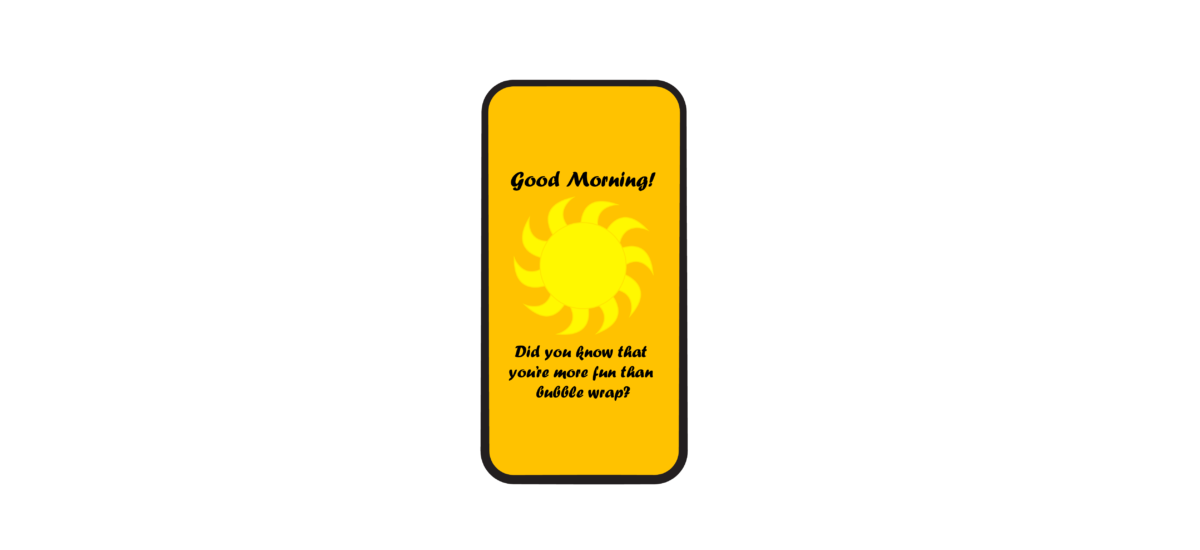Many social media platforms are detrimental to emotional and mental health. The new app/service that I am proposing will combat the negative effects of current platforms. Because I have yet to brainstorm a better name, for now I will call it Adless.
Innovative Design
Adless will be a platform that stays true to its name – it will have no ads. Users will not be bombarded by a multitude of overwhelming products and campaigns. The only information required to make an account will be a person’s name and either an email or phone number. Once the platform has been running stably for a couple of years, users will be asked to pay $2/month/person. Payment and personal information will be kept in a secure server and not sold.
It will have options for individual chat, group chat, and public chat.
Account setup will run through every setting and ask users if they want their profiles public or private, their notification preferences, etc. Private profiles and groups will have the option to be unsearchable and only be found via invite code. A suggestions box will have a permanent home in settings. The app interface will be personalizable themes, backgrounds, formats, and sounds. The app boot-up/loading screen will display a compliment, fun fact, or encouraging statement.
Posts will be repostable with author permission. The app will detect if uploaded content has been edited and will relay that information to viewers through some sort of post caption. People will be able to comment (with author permission). Tags can be used, but they will not influence the app feed. The app feed will consist of only friend/group posts. Categorized/tagged material must be searched and will be kept to their own pages. The “like” button will not exist.
Upgraded Criteria
Mental and emotional health is a growing issue in society. We all want to be happy, but our technology can make it hard to do that. So upon opening that app, why not be greeted with a positive message and personalized interface that screams “You”? Boosts you, and encourages you to be yourself?
Ads are annoying. They disrupt our daily life, subconsciously influence us, and persuade us to invest to things we do not really need. They distract and take away from our values, making it harder to live happy lives.
Privacy is a value of our society. We want our business to stay our business and not be broadcasted or sold to the world. Users will have strict control over their privacy settings, helping get rid of the worry of unwanted eyes. They can also rest assured that their information is not a product.
To keep the platform affordable for all, it will cost less than a cup of coffee each month.
People like to have control over their lives. This is why setup will include a run-down of every available setting so that users can chose how involved Adless will be in their lives. The suggestions box will give them an additional measure of say in how the platform that they use is run and they can feel confident that their input is valued.
By not using algorithms to influence feed, users will only see friend/group posts and posts that they specifically look for. Less sneaky mind control and brainwashing into longer app sessions! This also means that attention can be focused more easily on your community and values, rather than be disrupted by the schemes of capitalism. The absence of the like button will prevent users from associating their number of likes with their own self-worth.
The ultimate goal of Adless is to reduce mental and emotional stressors as much as possible so that users can enjoy a better day.
Supportive Context
Because of the multitude of other platforms that exist, it will take time to spread the word about Adless. It will take time to trial it, which is also part of the reason why it will be free for the first couple of years. I see this as being a universal tool for all ages and groups, particularly family and friend communication. It may be challenging for Adless to make its name alongside the big, addictive social media platforms, but once the app gets on its feet, it has the potential to become a successful platform for the simple allure of no ads – one of the biggest complaints about many services today.
Weigh Costs
To get Adless up and running, I would have to hire a lawyer to help identify the legal actions I would have to take. I would also have to take the time to develop secure information storage. Without hiring a verification team, Adless would not be able to identify fake news. The good thing, however, is that the fake news would have to be specifically searched for in the absence of any algorithms to spread it. Although Adless could be programed to censor foul language with ****s, it cannot censor bullying. Adless’ best defense here would be the user control over their privacy settings if they do not want to be found by others.
If the social community adapts negatively, the comment section for each post has the potential to become the new like button. At least it takes significantly more time to comment than it does to tap a like.

You must be logged in to post a comment.